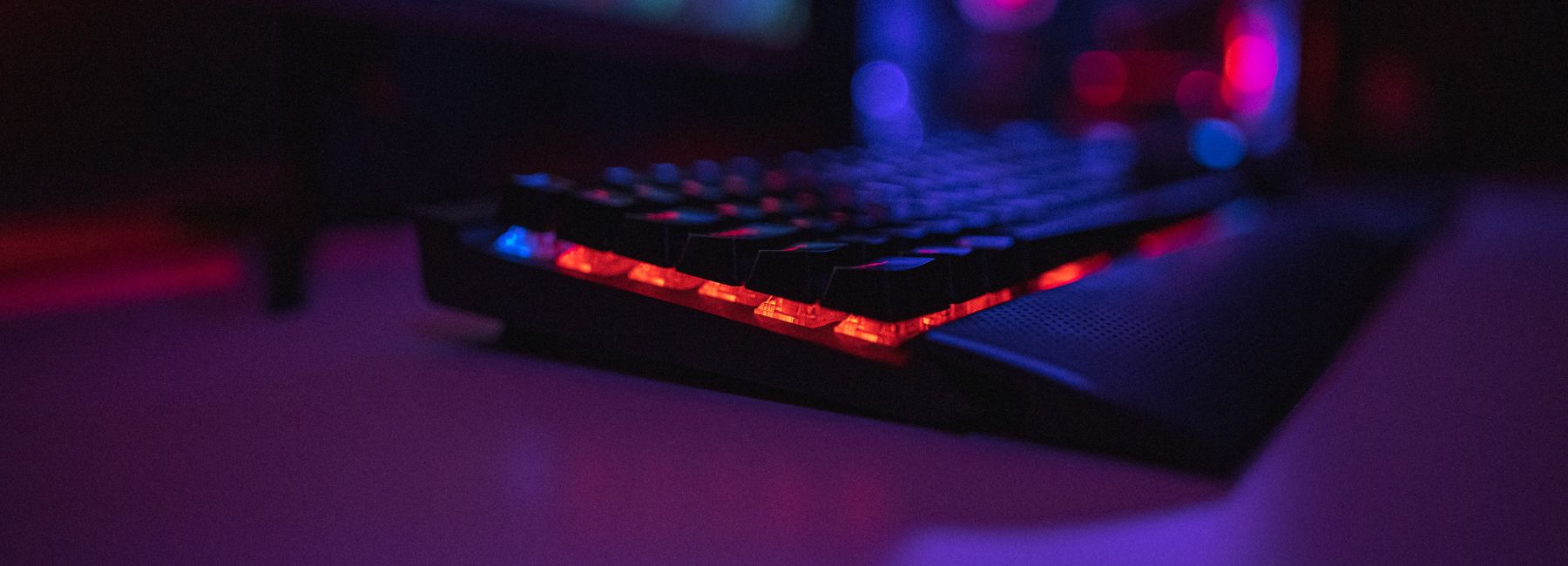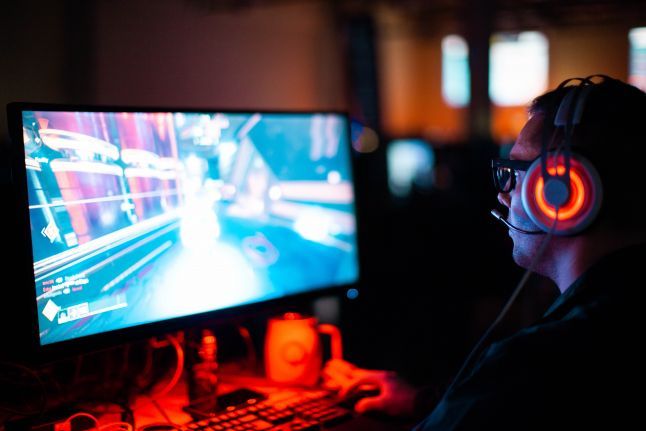The Truth Behind One of Licensed Music’s Most Common Marketing Terms
When game developers begin searching production libraries for the music that will make their video game soundtracks stand out, they are almost certain to encounter a common, two-word selling point:
Royalty free.
There it is… a beacon amidst the noise luring them with its promise of a painless licensing experience.
The attraction is understandable. As a game developer, you want to make sure that once you license a music track, you’re not going to be asked for more money down the line. You simply want the kind of agreement that prevents anyone from showing up at your door demanding more pay should your game become a smashing success.
When music is described as royalty free, it creates the impression that nobody’s collecting any such earnings from it, but the reality is actually a bit more complicated than that.
See, the term itself is rather a misnomer.
, the words ‘royalty free music’ – despite appearing practically everywhere in music licensing – are a marketing term rather than a legal term. Almost certainly somebody is paying for the rights.So when most of the music for gaming on the internet claims it is royalty free, what does that actually mean? And – more important – what should game developers know as they look to license royalty free video game music?
A Breakdown of the Rights Associated with Music
The first step to finding these answers is having an understanding of the rights that are attached to music. In order to use a piece of music legally, you must secure the following two rights:
- Master Sound Recording – The right to reproduce a specific recording of a song. A master recording refers to a complete, original recording of music used to create copies and often controlled by a record label or a library acting as one. This is the audio asset itself in your game.
- Synchronization – The right to synchronize, sometimes called “re-recording,” a song or a piece of music with other media. Synchronization rights must be obtained from the copyright owner of the music, typically the music’s publisher. In your game, this is the right to have it included as part of the player’s experience.
Thankfully, the licensing agreements used by most reputable production music libraries cover these rights, so anyone working with them is cleared, whether you’re a developer selecting your next video game soundtrack, a TV producer seeking music for a new series or a corporate brand marketer securing a song for a product’s commercial, to name a few.
Beyond these initial rights, however, there are two other rights associated with the composition (the intellectual property of the music). These “back-end” rights are what generate royalties:
- Performance – The right to perform copyrighted music whether broadcast or streamed. This traditionally applies to TV, internet, radio and streaming services such as Spotify, YouTube and Facebook. The royalties for performance rights are collected by performance rights organizations (PROs) like ASCAP, BMI, PRS and SESAC, and are typically split 50/50 between the music’s composer and publisher.
- Mechanical – The right to reproduce a piece of copyrighted music in any number of formats. While this began with radio plays or duplication onto CDs, DVDs, vinyl or tapes, it’s now also applied to use on streaming music services like Spotify and Apple Music, as well as streaming video platforms like Facebook and YouTube. Again, the royalties are split between songwriter and publisher, but mechanical royalties are collected and distributed by mechanical rights agencies such as the Harry Fox Agency and Music Reports.
When it comes to performance and mechanical rights, this is where the devil is in the details. Most music libraries claiming to be royalty free do, in fact, retain these back-end rights for themselves and the composers. This is typically acknowledged somewhere in the fine print of their license agreements. How can they legally say this, you ask? I will explain a little later in this article.
Why Music Royalties are More Important Today than Ever Before
But, for now, it is important to understand that royalties exist for a good reason. Without them, most professional composers and artists wouldn’t be able to make a full-time living creating music in a
.Today, because almost all music is streamed and downloaded digitally, the same 10-page royalty statement that would have yielded a composer $100,000 in income 20 years ago would be lucky to net $10,000. And for those earning fractions of the dollars they made before, it becomes that much more important to accurately track and collect what they can.
Additionally, the fewer artists and composers that can afford to earn a professional living, the more the quality of the craft overall suffers, and – along with it – the quality of what’s available for license in games, television, films, commercials or anything else.
So Who Actually Pays for Royalties on Licensed Music?
As I mentioned above, the term “royalty free” really comes down to a bit of creative semantics. When you purchase a music license from music libraries, you are extremely unlikely to be the ones responsible for paying the royalties, so that’s how libraries describing themselves as royalty free justify their claim.
In the television industry, TV networks or streaming platforms like Netflix pay for and obtain performance and mechanical licenses in order to secure the back-end rights; this responsibility does not fall on the individual TV producer or content editor charged with licensing music for a new series or special. If, for example, you’re working on a new episode of “This Is Us” that will eventually air on NBC, the royalties for any music used will be assumed by NBC as the network.
Same could be said for the creatives tasked to license music for commercials that air on television or streaming platforms. If a well-known YouTube creator licenses music for a streamed show, it’s YouTube that is responsible for securing the rights that generate royalties, not the creator. In the vast majority of situations, the PROs and mechanical rights agencies have agreements already in place with networks, streaming services and many other platforms (i.e., stores, restaurants, venues).
To determine what royalties are actually paid in the television industry, the PROs and mechanical rights agencies get a count of how many times a music track plays and then use various formulas that include network, time of day, duration, type of usage and several other factors to determine the amount of royalties to be paid and to whom.
Keep in mind that a lot of these royalties are very small. For a TV show, a placement might net a composer 25 cents for a single airing, so it’s not a lot of money, but it can add up, which is important when so many of these creators have lost earnings over the years due to digitalization.
The Ever-Changing State of Music Royalty Collection in Video Games
Historically, the music licensing landscape for video games has been a bit different, and use of the term royalty free hasn’t just been marketing semantics. The term essentially represents the kinds of agreements that have been made between game companies and composers: complete buyouts of the composition’s performance and mechanical rights.
Such buyout arrangements were OK with composers in the past because there weren’t many instances that would have warranted royalty collection to begin with. And if the possibility did present itself, a composer could negotiate a higher fee for their music in exchange for the buyout.
But with the advent of streaming, whether it be during actual game play or a broadcast of game play, these royalties are becoming more and more prevalent. And as new technologies emerge, the PROs and mechanical rights agencies are continuously evolving alongside, in order to best serve the composers who belong to them.
In the United States, these royalty collecting organizations are still in the early stages of establishing relationships with the game publishers and platforms. Yet, there is definitely momentum, as BMI told us.
“The video gaming marketplace is rapidly evolving in terms of performing rights and BMI’s relationship to video game experiences,” explained Evan Parness, BMI’s AVP, Digital Licensing. “Most recently, we’ve seen a shift in gaming from private at-home consumption to more of a public forum facilitating game play or game spectating. Many of the most notable services have licenses with BMI, and we are continually in discussions with emerging platforms as this market expands.”
Europe is also trending toward music usage tracking in video games, as European PROs are already collecting royalties from major platforms such as the PlayStation Network.
Worldwide, we are now seeing streaming sites that feature video game play, such as Facebook, Twitch and YouTube, licensed with the PROs and mechanical rights agencies for the collection of royalties.
Another significant change in the game industry is with tracking performances within game play. In the “old days” before the internet, video games were sort of a closed ecosystem, and there was no way to tell when and how much a particular track was being played. Now, we know technology can track the following:
- Which tracks are being played
- How long a track is played for
- Whether the audio is turned on or off in the game’s preferences
This means that the same data points in place for tracking television now exist within games, allowing PROs and mechanical rights agencies to formulate their royalties.
A Crack-Down on Music Royalty Collection
The reality is that royalty collecting organizations are having to go to greater lengths to protect their members’ interests now because music use (especially digital) is so widespread and often difficult to monitor. The
was established to help enforce music copyright compliance in the digital landscape to make sure music composers and artists are fairly paid for their work.At a recent, virtual, streamed version of BlizzCon, Twitch suddenly
with a music track many described as the antithesis of heavy metal. Fearing a DMCA takedown over copyright violation, the streaming platform made the widely publicized move when it realized it didn’t have the right music performance license in place for its channel.Game Music Considerations for Developers
The digital landscape is clearly in a state of flux when it comes to music rights, so what should video game developers be aware of as they license soundtracks for future games?
For now, developers really want to make sure they work with a legitimate company with licensing agreements that cover the master and sync rights. And unless the publisher and composer specifically waive their back-end rights (a buyout), understand that there’s potential for the PROs or mechanical right agencies to collect royalties from the game publishers or platforms your game is on in the future.
As I alluded to above, there are a handful of libraries that are truly royalty free strictly because they have bought out the performance and mechanical rights from the composers they work with. While this may sound great on the surface, it is likely not doing justice to composers who won’t get paid royalties if their music gets used. Instead, it will be collected by the library, or not collected at all! And because professional music library composers will almost always shy away from total buyouts like this, game developers will often find the quality of the music in these libraries sub-par.
The advantage of working with a reputable library that has retained back-end rights for their music is that they can charge less for the initial license fee paid by the developer. They do this knowing that royalties will likely be paid for compensation down the road. And as I explained earlier, if you’re a video game developer – similar to being a TV producer or Youtube creator – you won’t be the one having to pay back-end royalties. These will be set up to be paid by the game publishers or platforms, not you.
In the end, it is actually a win/win for music to retain its royalty rights. The game developer will typically have a less expensive upfront cost for high-quality music with no other payments due, and if the game becomes successful, the composer will receive their share of the success from the game publisher/platform in the form of royalties.
This article was published by





